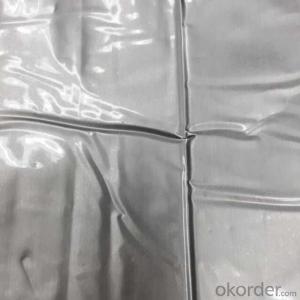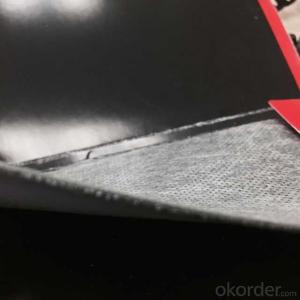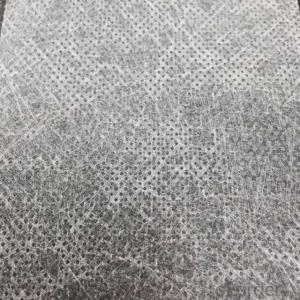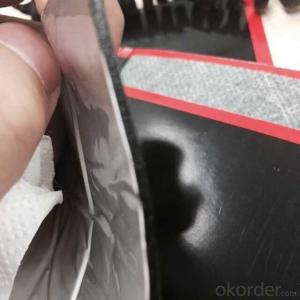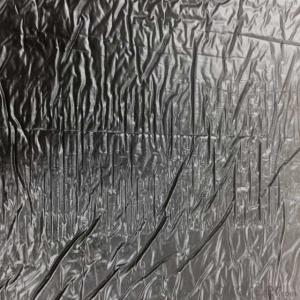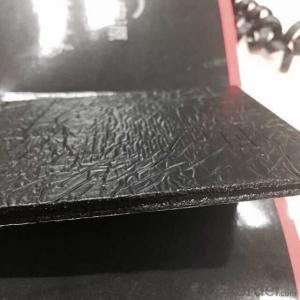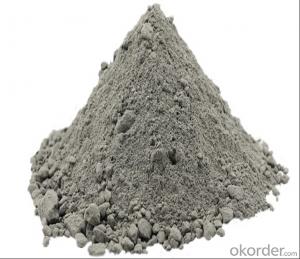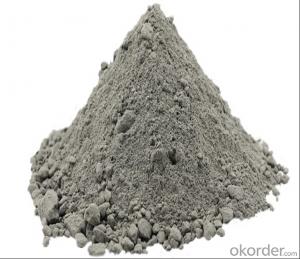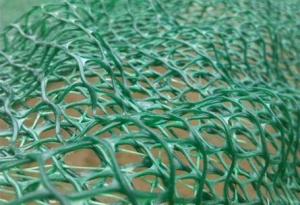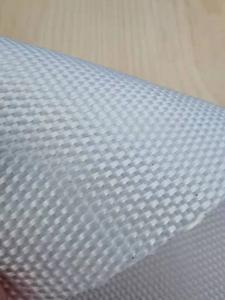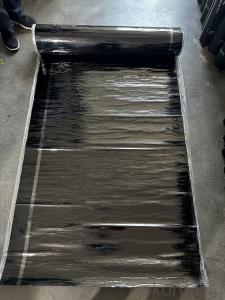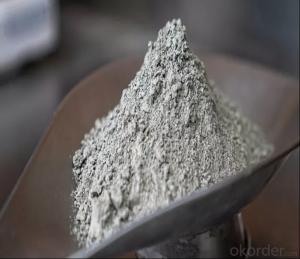Self-adhesive Modified Bitumen Waterproofing Membrane
- Loading Port:
- Qingdao
- Payment Terms:
- TT OR LC
- Min Order Qty:
- 2000 m²
- Supply Capability:
- 60000000 m²/month
OKorder Service Pledge
OKorder Financial Service
You Might Also Like
Specifications of Self-adhesive Modified Bitumen Waterproofing Membrane:
Self Adhesive Bitumen Waterproof Membrane
Introduction of Self-adhesive Modified Bitumen Waterproofing Membrane:
SBS(Styrene Butadiene Styrene) /APP (Atactic Polypropylene) modified bitumen membrane is made by saturating the base in bitumen, or thermoplastic elastomer (such as SBS, APP, APAO, APO), reinforced with polyester or fiberglass, finishing the upward face with polythene membrane, fine sands or mineral slates (or grains) or etc.
Specification of Self-adhesive Modified Bitumen Waterproofing Membrane:
Thickness | 3mm, 4mm, 5mm |
Width | 1m |
length | 7.5m, 10m, 15m, or on demand |
Base | Polyester or Fiberglass felt |
Surface | PE film, Aluminum foil, Yellow sand, Shale gravel(Schist), colored sand |
Type | could self-adhesive |
Notice | SBS modified bitumen membrane is specially applied in the cold district, APP modified bitumen membrane is more suitable for hot district with high temperature. could be self-adhesive modified bitumen membrane |
Applications of Self-adhesive Modified Bitumen Waterproofing Membrane:
-Roof and underground in industrial and civil buildings;
-Bridge, subway, tunnel, swimming pool, etc.
-Waste landfill, sewage plant, irrigation system, etc.
-Self-adhesive Modified Bitumen Waterproof Membrane
-Easy applying and economic on the cost saving
Advantage of Self-adhesive Modified Bitumen Waterproofing Membrane:
-Non-solidified, excellent elastic deformation,thus have good noise reducing;
-Easy applying and economic on the cost saving.
-Good performance on waterproof and economic sound damping.
Picture of Self-adhesive Modified Bitumen Waterproofing Membrane:
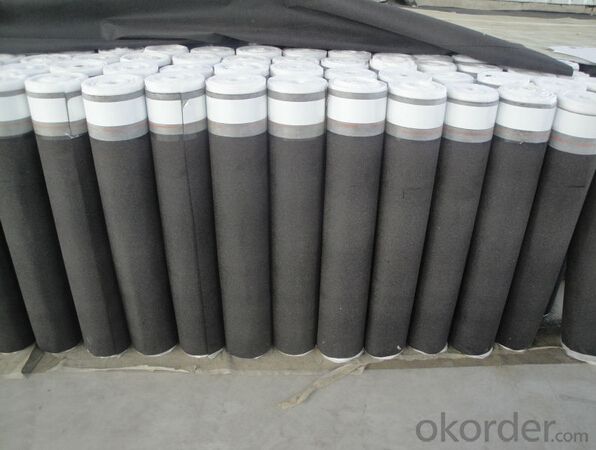
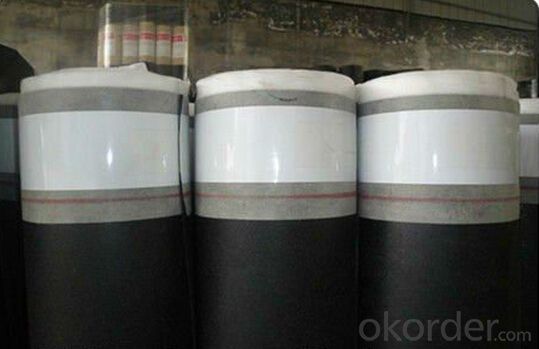
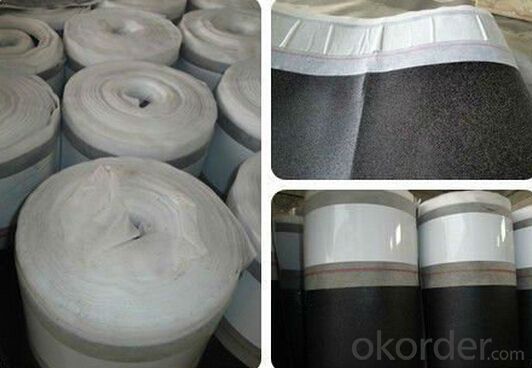
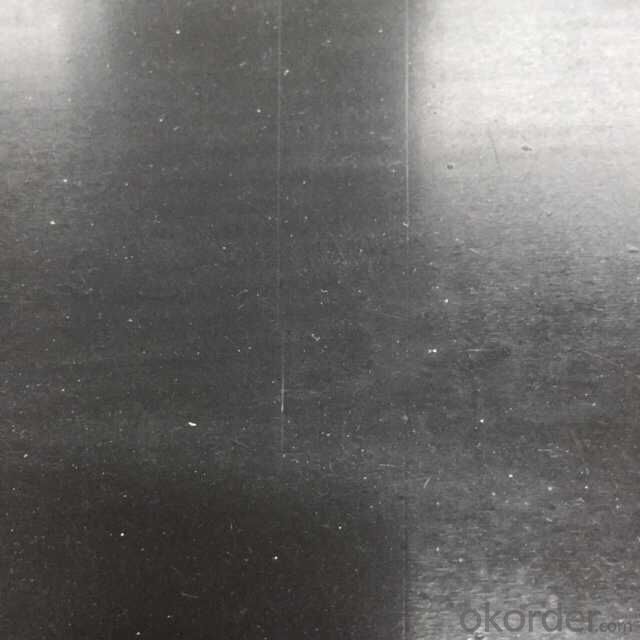
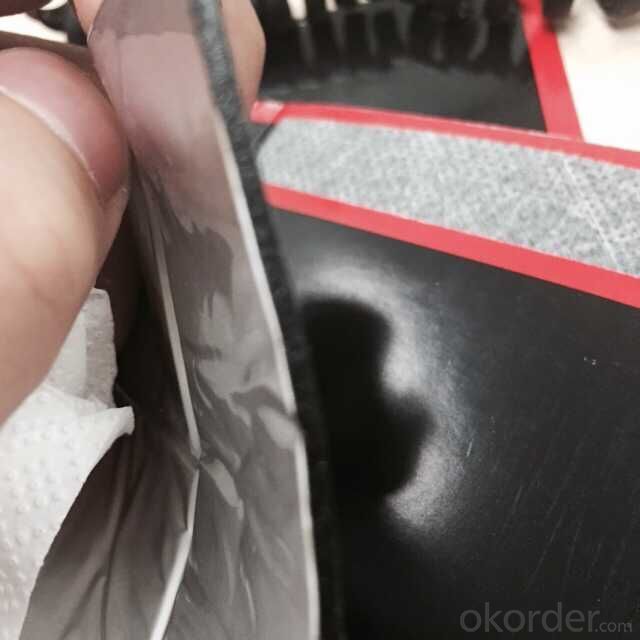
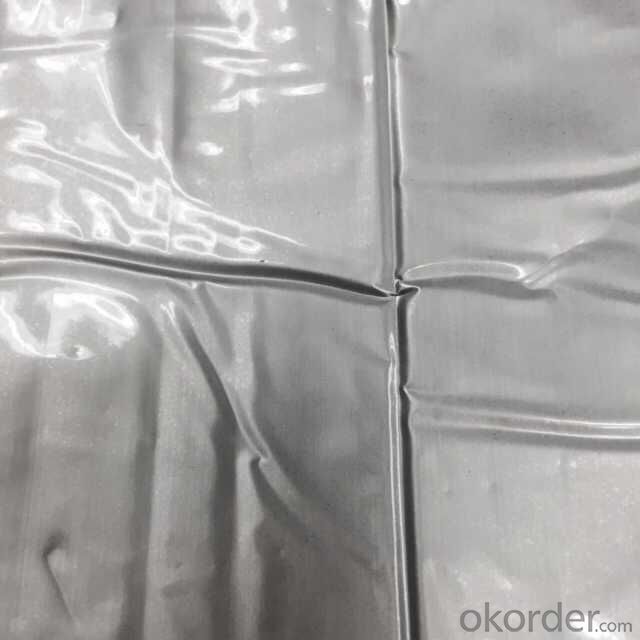
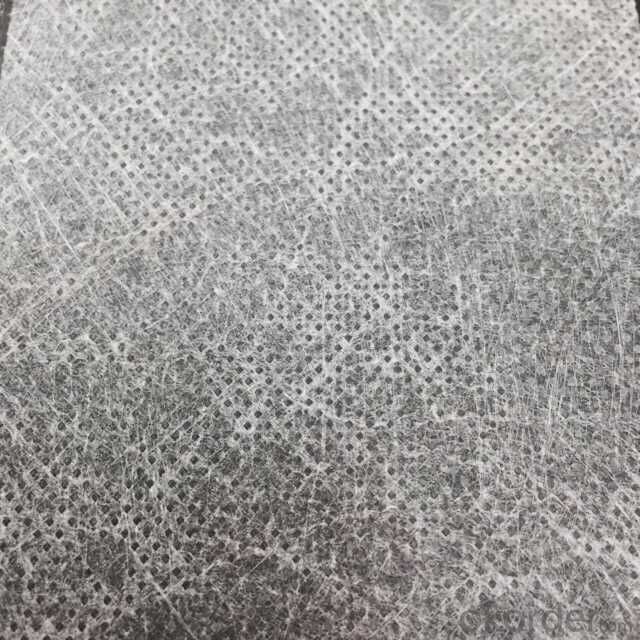
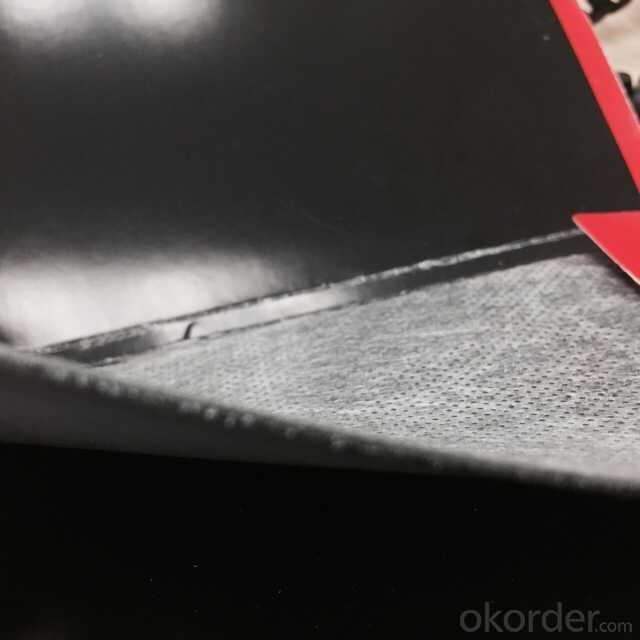
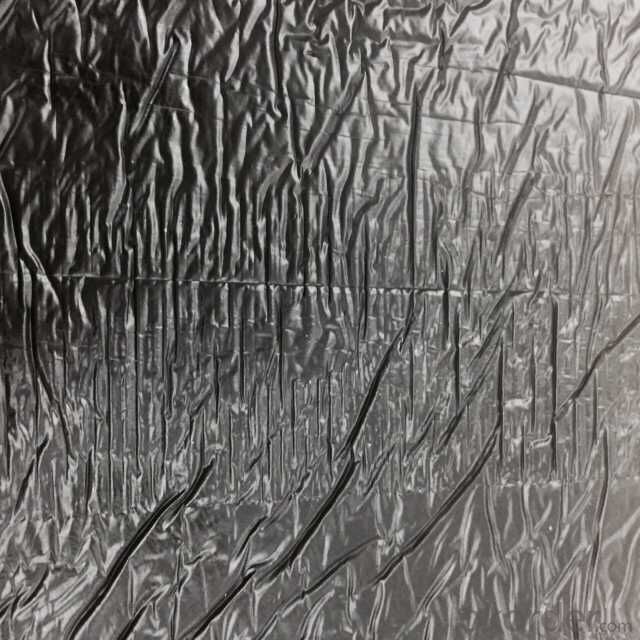
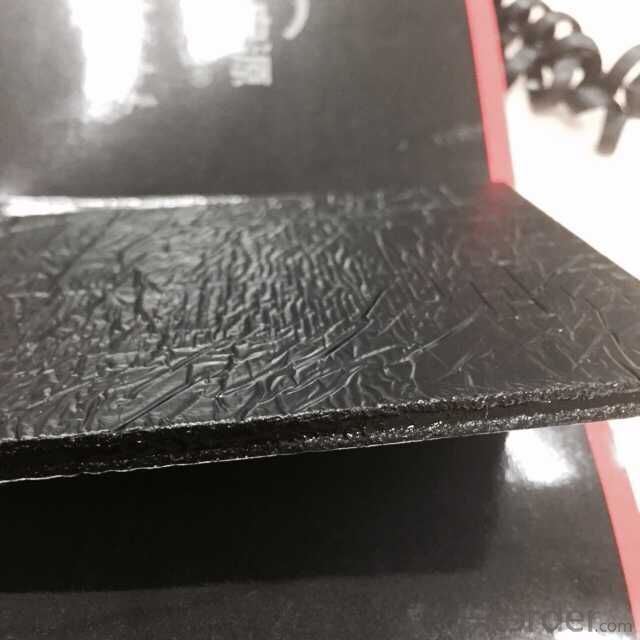
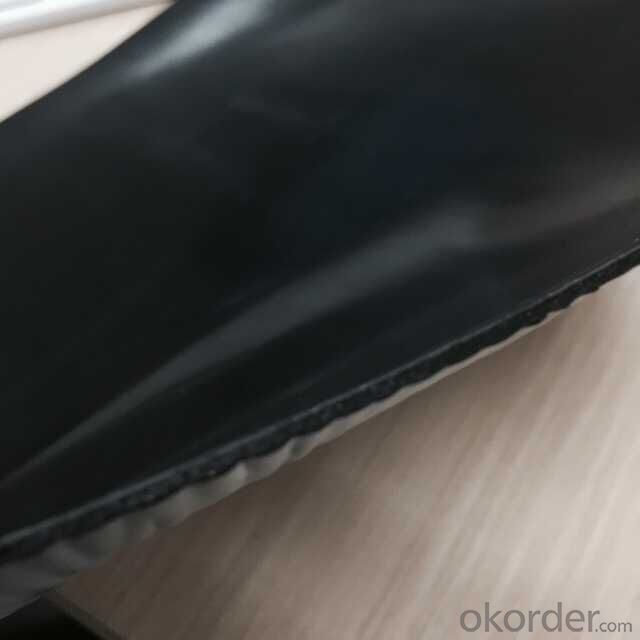
Storage of Self-adhesive Modified Bitumen Waterproofing Membrane:
Shelf life is 12 months. Store in a cool and dry place with original packing.
Breathable Waterproof Roof Underlay membrane (PP-PP,S-PP,S-S)
Permeable membrane is polymer modified asphalt based, with surface of high strength polypropylene fiber. Back side coated with self adhesive glue or antiskid sand. Made by special process. With excellent waterproof performance and breathable properties.\
Description | Specification | Width | Length | Thickness | |
Roof underlay | 500g/m2PP—PP | 1000mm | 30m | 0.8mm | |
600g/m2S—PP | 1000mm | 25m | 1.0mm | ||
1500g/m2S—S | 1000mm | 20m | 1.3mm | ||
Roof underlay with adhesive band | 500g/m2PP—PP | 1000mm | 30m | 0.8mm | |
600g/m2S—PP | 1000mm | 25m | 1.0mm | ||
1500g/m2S—S | 1000mm | 20m | 1.3mm | ||
It is used as the underlayment of cement tile, painted pottery watts and asphalt shingle. Also suitable for all kinds of architectural roofing, walls, underground waterproof and damp proof project.
Features:
It has good waterproofing and ageing-resistance function,not flowing at highest temperature and no crack at lowest temperature;
Easy application,no pollution,and long service life etc.
Usage:
It is widely used for industry and civil building --- the waterproof and dampproof of the roofs,basements,toilets etc;and the waterproofing of bridges,parking area,tunnels,reserviors etc.
It is specially suitable to the building waterproofing in cold area and to the buildings of changeable constructions.
Requirements for surroundings
-The base should be dry and clean. Do not work in the rainy or snowy day.
-Do not work under heavy wind(above 5 grade)
-Unsuitable for construction below 0°C
FAQ:
1. What are we supplying?
We are specialized in producing Colorful Asphalt Roof Shingle, SBS/APP modified bitumen waterproof membrane, Self adhesive bitumen waterproof membrane, PVC waterproofing membrane, EPDM rubber roofing membrane, Single Component Polyurethane Waterproof Coating, and Spray Polyurea Waterproof Coating
2. How Many years experience do we have?
We have been exported to more than 20 countries in the past 15 years.
3. How long do we usually reply your request?
We always reply our customer within 24 hours.
- Q:Does a waterproofing membrane require any specific surface preparation for tile installations?
- Yes, a waterproofing membrane typically requires specific surface preparation for tile installations. The surface needs to be clean, dry, and free of any dirt, dust, or debris. It is important to remove any loose or damaged tiles, repair any cracks or imperfections, and ensure the surface is smooth and level before applying the waterproofing membrane. This preparation ensures proper adhesion and a successful tile installation.
- Q:Can a waterproofing membrane be used in swimming pools or other water features?
- Yes, a waterproofing membrane can definitely be used in swimming pools or other water features. In fact, it is highly recommended to use a waterproofing membrane in these areas to prevent water leakage and damage. A waterproofing membrane acts as a barrier between the water and the surrounding structures, ensuring that the water is contained within the pool or water feature. It helps to prevent water seepage, which can cause structural damage and lead to costly repairs. Additionally, a waterproofing membrane also helps to protect the pool or water feature from the harsh chemicals used for water treatment, ensuring its longevity and durability. Therefore, using a waterproofing membrane is a crucial step in the construction or renovation of swimming pools or other water features to ensure their functionality and longevity.
- Q:Can a waterproofing membrane be used for a commercial building?
- Yes, a waterproofing membrane can be used for a commercial building. Waterproofing membranes are commonly used in commercial buildings to protect the structure and prevent water damage. They provide an effective barrier against moisture and can be applied to various surfaces such as roofs, basements, and foundations. This helps to maintain the integrity and longevity of the building, preventing leaks and potential structural issues.
- Q:Can waterproofing membranes be used on concrete tanks?
- Waterproofing membranes have the capability to be utilized on concrete tanks. These membranes are commonly employed in order to prevent water infiltration and safeguard concrete structures from water-related harm. Concrete tanks, much like other concrete structures, are vulnerable to water penetration over time, which can result in deterioration and structural problems. The application of a waterproofing membrane on the concrete surface can effectively obstruct water infiltration, thereby enhancing the tank's durability and prolonging its lifespan. A range of waterproofing membranes, including liquid-applied membranes, sheet membranes, and cementitious coatings, are available, each with its own unique advantages and suitability for different purposes. It is crucial to select the appropriate type of waterproofing membrane based on factors such as the tank's usage, exposure to water pressure, and environmental conditions. Additionally, proper surface preparation and application techniques play a significant role in ensuring the efficacy and longevity of the waterproofing membrane on the concrete tank.
- Q:Are waterproofing membranes flexible?
- Yes, waterproofing membranes are typically flexible. They are designed to be able to expand and contract with the building materials they are applied to, ensuring a tight and secure seal to prevent water penetration.
- Q:Can a waterproofing membrane be used on glass surfaces?
- No, a waterproofing membrane cannot be used on glass surfaces. Waterproofing membranes are typically designed to adhere to porous and rough surfaces such as concrete, wood, or metal. Glass surfaces are smooth and non-porous, which makes it difficult for a membrane to adhere properly and provide a waterproof barrier. Additionally, glass is already naturally waterproof, so there is generally no need for additional waterproofing measures on glass surfaces.
- Q:How does a waterproofing membrane handle settlement of adjacent structures?
- A waterproofing membrane can handle settlement of adjacent structures by being flexible and able to accommodate movement. It is designed to withstand and adapt to shifts in the surrounding structures without compromising its integrity or waterproofing capabilities.
- Q:The shortcomings of polypropylene waterproofing, and the shortcomings of modified asphalt waterproofing membrane
- but the current domestic Still less match with the binder, because the environment and bonding materials and other factors often lose their bond function in advance, resulting in water failure will be self-evident; then waterproofing membrane after the construction of the protection And the leak after the maintenance is also a problem, exposed to the outside of the waterproof layer of foreign mechanical damage prevention is very important, waterproof membrane and grass-roots bonding, whether it is full shop, shop, shop, empty shop, The grassroots will be between the water layer, regardless of any part of the penetrating breakage, degumming, leakage of glue (even if there is only one), the entire level of its connection with the waterproof function will all decline, if not Find damaged and defective parts, the local repair is not possible, then only redo waterproof layer. So it is better to waterproof polypropylene
- Q:Can a waterproofing membrane be applied on a vertical surface?
- Yes, a waterproofing membrane can be applied on a vertical surface. Waterproofing membranes are designed to create a barrier against water penetration, whether it is applied horizontally or vertically. They are commonly used on vertical surfaces such as walls, retaining walls, and foundations to prevent water damage and leakage.
- Q:Can waterproofing membranes be used on stormwater management systems?
- Yes, waterproofing membranes can be used on stormwater management systems. These membranes provide a protective barrier that prevents water from infiltrating into the system, ensuring efficient and reliable stormwater management.
1. Manufacturer Overview |
|
|---|---|
| Location | |
| Year Established | |
| Annual Output Value | |
| Main Markets | |
| Company Certifications | |
2. Manufacturer Certificates |
|
|---|---|
| a) Certification Name | |
| Range | |
| Reference | |
| Validity Period | |
3. Manufacturer Capability |
|
|---|---|
| a)Trade Capacity | |
| Nearest Port | |
| Export Percentage | |
| No.of Employees in Trade Department | |
| Language Spoken: | |
| b)Factory Information | |
| Factory Size: | |
| No. of Production Lines | |
| Contract Manufacturing | |
| Product Price Range | |
Send your message to us
Self-adhesive Modified Bitumen Waterproofing Membrane
- Loading Port:
- Qingdao
- Payment Terms:
- TT OR LC
- Min Order Qty:
- 2000 m²
- Supply Capability:
- 60000000 m²/month
OKorder Service Pledge
OKorder Financial Service
Similar products
New products
Hot products
Related keywords
